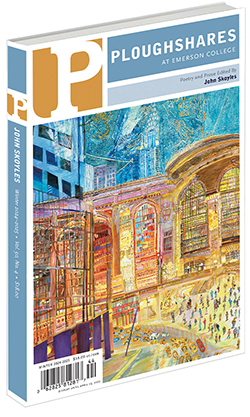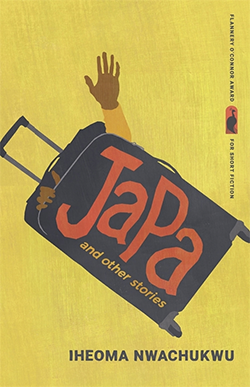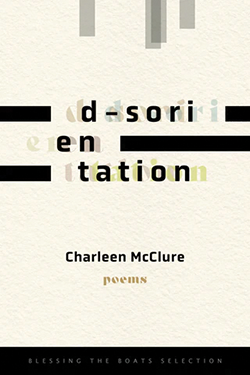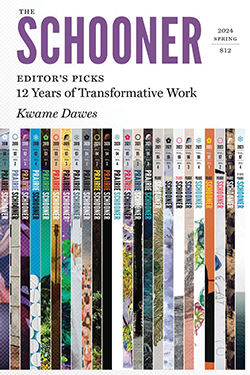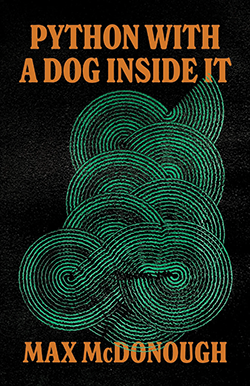Celebration of new talent. Amplification of extraordinary voices on the margins. A will to push the boundaries of what writing can do and be. These are the missions of some of this summer’s notable opportunities for writers: unique awards that promise to showcase the talents of their winners. Here we take you behind the scenes to see how these contests are run, who they serve, and why they do what they do. Writers, start your engines and submit today.
Ploughshares
Emerging Writer’s Contest
Prize: $2,000, publication, literary agency introduction
Deadline: May 15
Typical number of submissions: 2,500 to 3,000 submissions across all three submission categories
For many writers, a chance to have work appear in Ploughshares is the stuff of dreams; since its beginning in 1971, the quarterly print journal has published the likes of Andrea Barrett, Raymond Carver, Lucille Clifton, and Jorie Graham and helped launch the careers of Tim O’Brien and Mona Simpson. The journal’s Emerging Writer’s Contest represents a unique opportunity to join this lineage. Begun in 2011 at the suggestion of Margot Livesey, the journal’s fiction editor at the time, the contest deepens Ploughshares’ commitment to elevating new talent. “A hallmark of our issues is spotlighting the work of established writers alongside emerging ones, and we are committed to using our platform to uplift the voices of writers with limited publication history,” says managing editor Rachel Dillon. Open to submissions in poetry, fiction, and nonfiction, the contest names a winner in each category who receives $2,000, publication in the journal, and an introduction to an agent at Aevitas Creative Management “as a way to further support their literary aspirations and help them make meaningful connections.”
Each year the journal recruits contemporary writers to serve as the contest’s final judges. A careful screening process narrows thousands of submissions down to finalists. “We are lucky to have an enthusiastic and talented team of volunteer readers who support us in reading for both our regular reading period and our Emerging Writer’s Contest,” says Dillon. “Each submission is read by at least two readers to form a longlist in each genre; these longlists are passed on to our senior readers, who work together to narrow down the longlist into a shortlist to pass on to the judges. Each judge selects one winner and one honorable mention from the shortlist.” When the good news of the contest’s results is at last shared, “the response of the winners is always heartening,” says Dillon. “It is not only the fact that Ploughshares has been around for over fifty years and has a storied history, but the winners know they have gone through an initial round of screening and survived stiff competition just to get to the judge’s queue. To then have their work chosen by a respected writer or poet provides them with a serious boost in ways that exceed publication. It shows that others take their work seriously.” —EKH
University of Georgia Press
Flannery O’Connor Award for Short Fiction
Prize: $1,000, publication
Deadline: May 31
Typical number of submissions: 344 in 2024
Few writers are as synonymous with short story excellence as Flannery O’Connor, and few prizes honor the short story with the care of the Flannery O’Connor Award for Short Fiction, offered by the University of Georgia Press. Established in 1983, the prize aims “to celebrate the story form by ferreting out the best unpublished collections and bringing them into print,” says series editor Lori Ostlund. While the contest is open to writers at any stage of their career, Ostlund says, “it has served as a proving ground for writers such as Ha Jin, Antonya Nelson, Andrew Porter, Molly Giles, and Amina Gautier,” showcasing the unique pleasures and possibilities of the form and cementing the genre’s place in American literary tradition.
Ostlund’s job as series editor is to gather a group of judges to help screen submissions, as well as work directly with the contest’s winner on any revisions to the winning collection. “Because the turnaround time is fairly fast, I cannot choose collections that need a lot of work, so the edits are targeted—on a particular story or problematic beginnings or story order, for example,” says Ostlund. “Though I am not the marketing person for the prize, I do whatever I can in this department, from helping unpublished stories find homes in journals to reaching out to reviewers and interviewers. … When I took on the series editor role, I assigned myself the role of cheerleader for not only short stories, but story collections.”
Despite the contest’s name, its best entries are those that find their own voice rather than imitating someone else’s. “One question that I hear often is ‘Does the winning collection need to pay tribute to O’Connor’s work in some way?’ My answer is no, though I do think that O’Connor helped to redefine the short story, so I am always looking for writers who are bringing a fresh perspective or challenging our notions about the structure or craft of short stories,” says Ostlund. As a past winner of the prize herself, Ostlund knows the thrill of receiving the call that your collection has won: “When I won the award in 2008, it changed my trajectory as a writer. Very quickly I got an agent, and the award opened the door to other awards and opportunities. I think that my story is a common one among recipients.” —EKH
BOA Editions
Blessing the Boats Selections
Prize: $2,500, publication
Deadline: July 14
Typical number of submissions: 132
BOA Editions, the Rochester, New York–based nonprofit publisher of poetry, poetry in translation, and short fiction, has put out over 300 books by emerging and established writers since its founding in 1976. During that time it has also published the work of renowned poets, such as Lucille Clifton, Carolyn Kizer, Naomi Shihab Nye, and W. D. Snodgrass, whose titles have gone on to win or be nominated for honors including a National Book Award, a National Book Critics Circle Award, and a Pulitzer Prize. In a pointed effort to expand the breadth and richness of its publishing list, the press founded Blessing the Boats Selections in 2020 to honor poetry collections written and selected by women of color. The annual series hasn’t operated as a contest in the traditional sense, says publisher and executive director Peter Conners, who made it a point to steer clear of “monetary barriers” by not charging an entry fee and to offer winners a “significant honorarium” of $2,500, thanks to generous financial support from the Lannan Foundation.
The selection process itself differs from that of a typical contest: Instead of featuring a judge who picks a winning manuscript from a batch of finalists (often preselected from a larger submission pool by a panel of readers or editors), Blessing the Boats Selections is curated by an editor-at-large who personally reviews every submission received during the open reading period, which will run from June 1 to July 14 this year. Aracelis Girmay, the editor-at-large since the inception of the series, has also remained in close dialogue with Conners to share exceptional manuscripts by poets who, although not selected for the series, would later publish their books with BOA Editions as part of its general list. The press recently announced that Evie Shockley will take over this year as the series’ second editor-at-large.
Through Blessing the Boats Selections, BOA Editions strives to extend the lineage of Lucille Clifton, whose seminal volume of selected poetry the series is named after. Girmay cites the following lines from one of Clifton’s poems in the submission guidelines to pay homage to the sense of possibility “her writings on Black female life” have afforded so many: “born in babylon / both nonwhite and woman / what did i see to be except myself?” —LGN
Sewanee Review
Fiction, Poetry, and Nonfiction Contest
Prize: $1,000, publication
Deadline: July 31
Typical number of submissions: 1,000
Founded in 1892, the Sewanee Review is the oldest continuously published literary quarterly in the United States and boasts a long-standing tradition of publishing some of the most prominent writers of the twentieth century, including T. S. Eliot, William Faulkner, Marianne Moore, and Katherine Anne Porter, while fostering emerging talent by putting out excerpts of Cormac McCarthy’s and Flannery O’Connor’s first novels as well as the early poetry of Robert Lowell, Sylvia Plath, and Robert Penn Warren. As part of its commitment to growing this legacy, the magazine sponsors the annual Fiction, Poetry, and Nonfiction Contest, which offers three prizes of $1,000 each and publication for a single poem or group of poems, a short story, and an essay. While the stiff competition may feel daunting (the contest received over 1,100 submissions last year), the $30 entry fee still comes with a one-year subscription to the Sewanee Review. This year Cindy Juyoung Ok will judge in poetry, Lauren Groff will judge in fiction, and Roger Reeves will judge in creative nonfiction.
All submissions, which are kept anonymous, are first evaluated and ranked by a panel of readers made up of current and former editorial staff members, and the highest-rated manuscripts in each genre are subsequently reviewed by the entire cadre of reviewers who select a group of semifinalists. These entries are then read by editor Adam Ross and, after collective deliberation, winnowed to a group of at least ten finalists. Each guest judge picks a winner from the finalist pool, and their citation is published on the Sewanee Review website. All those who reach the last round receive recognition online. The magazine also posts the contest results on its social media platforms. “Whatever the new literature turns out to be,” wrote editor Allen Tate in 1944 to capture the magazine’s mission, “it will be the privilege of the Sewanee Review to print its share of it, to comment on it, and to try to understand it.” —LGN
Prairie Schooner
Creative Nonfiction Summer Essay Contest
Prize: $1,000, publication
Deadline: August 1
Typical number of submissions: 250
The literary quarterly Prairie Schooner, published in collaboration with the University of Nebraska Press and the Creative Writing Program of the University of Nebraska in Lincoln English Department, sponsors the annual Creative Nonfiction Summer Essay Contest, which offers a prize of $1,000 and publication for an essay. The magazine established the contest in 2012, shortly after the then assistant nonfiction editor Sarah Fawn Montgomery pitched the idea to raise the profile of work published in that genre. The contest’s submissions, which totaled more than four hundred last year, are initially screened by a team of graduate student readers and editors and then reviewed by current assistant nonfiction editors Blake Kinnett and Zainab Omaki, who select a group of finalists from which the final judge picks a winner. The impressive list of past judges includes writers Melissa Febos, Rigoberto González, Kiese Laymon, Carmen Maria Machado, Lia Purpura, Safiya Sinclair, and Esmé Weijun Wang.
The editors at Prairie Schooner welcome submissions that mark a departure from the traditional essay, including works of memoir, personal essays, literary journalism, lyric essays, and more experimental modes. Guest judges have themselves declared a range of preferences for what they seek in a captivating essay, both in terms of form and content. Lia Purpura, who judged the summer contest in 2013, stated that the form is “wildly capacious…perhaps because it’s grounded in, a priori, a human’s singular experience of the world.” More recently, judge Rigoberto González said that the key lies in “narrators who are aware and observant about the landscapes and communities they inhabit…and who are emotionally intelligent.” In 2018 judge Carmen Maria Machado expressed her desire for “beautiful sentences, formal experimentation…intelligent criticism, bodies and their nightmares, humor, risks.”
The magazine promotes the winning essay on its social media platforms and newsletter, which reaches over 18,000 readers, and often publishes the piece on the Prairie Schooner website. Past winners have even gone on to have their essays receive notable mentions in a volume of the Best American Essays series. —LGN
Black Lawrence Press
St. Lawrence Book Award
Prize: $1,000, publication by Black Lawrence Press, 10 author copies
Deadline: August 31 (early bird deadline of June 30)
Typical number of submissions: 500 to 600
Since 2004 indie publisher Black Lawrence Press has brought a powerful and eclectic range of poetry, fiction, and nonfiction titles to readers while cultivating deep relationships with the authors it publishes. The St. Lawrence Book Award, which published its inaugural winner in 2010, was founded out of the press’s commitment to supporting writers at the beginning of their careers. “We delight in working with new and first-time authors,” says executive editor Diane Goettel. Open to writers who have not yet published a full-length book, the prize confers publication of the winning prose or poetry manuscript in addition to a cash award of $1,000 and ten author copies.
Each year the press combs through hundreds of submissions to the contest, carefully winnowing down the pool of submissions. “We judge by committee, with both editors and a panel of judges conducting first-round reads for the contest,” says managing editor Kit Frick. “Entries that receive an initial yes vote from the first-round reader go on to Diane Goettel for a second read. From there, Diane puts together a long list of semifinalists, and from that group, a shorter list of finalist entries that are shared with the judging panel. The panel reads and ranks the finalists—the number varies, but it’s usually five to ten. The entry awarded the highest collective score by the judging panel is named the winner, and Black Lawrence often awards one or more contracts to others from the finalist group.”
Who are these judges? “Our judging panels are composed exclusively of Black Lawrence authors; in the case of the St. Lawrence Book Award, the panel members are all previous winners,” says Frick. “It’s so important to us to give our authors avenues for continued involvement in the press, beyond the publication of their book…. It gives our authors a voice in the direction of the award, and it’s exciting for us to read and fall in love with manuscripts our authors have plucked from the pool of entries and passed on to us with enthusiasm.” Entries were so strong for the 2025 contest that three books emerged for publication from the process; in addition to publishing contest winner Jill Rosenberg’s collection Now I’m Photogenic and Other Stories I Tell Myself!, the press will release the books of finalists Katherine Conner and Arielle Hebert in summer 2026. After publication, winners’ books are supported through preorder campaigns, promotion at national and regional conferences, and other channels—making the award for many writers not just an exciting debut, but also a meaningful first step in a larger career. —EKH
Emma Komlos-Hrobsky is a senior editor of Poets & Writers Magazine whose writing has appeared in Tin House, Conjunctions, Guernica, Hunger Mountain, Bookforum, and elsewhere. With the support of a grant from the Elizabeth George Foundation, she is at work on a novel about particle physics, motherhood, and the Alps.
Luciano Grigera Naón is the assistant editor of Poets & Writers Magazine. He teaches English and undergraduate creative writing at Brooklyn College, where he won the 2023 Himan Brown Award in Poetry and served as a contributing editor for the Brooklyn Review. His translations from the Spanish are forthcoming in the Arkansas International and Midst.








